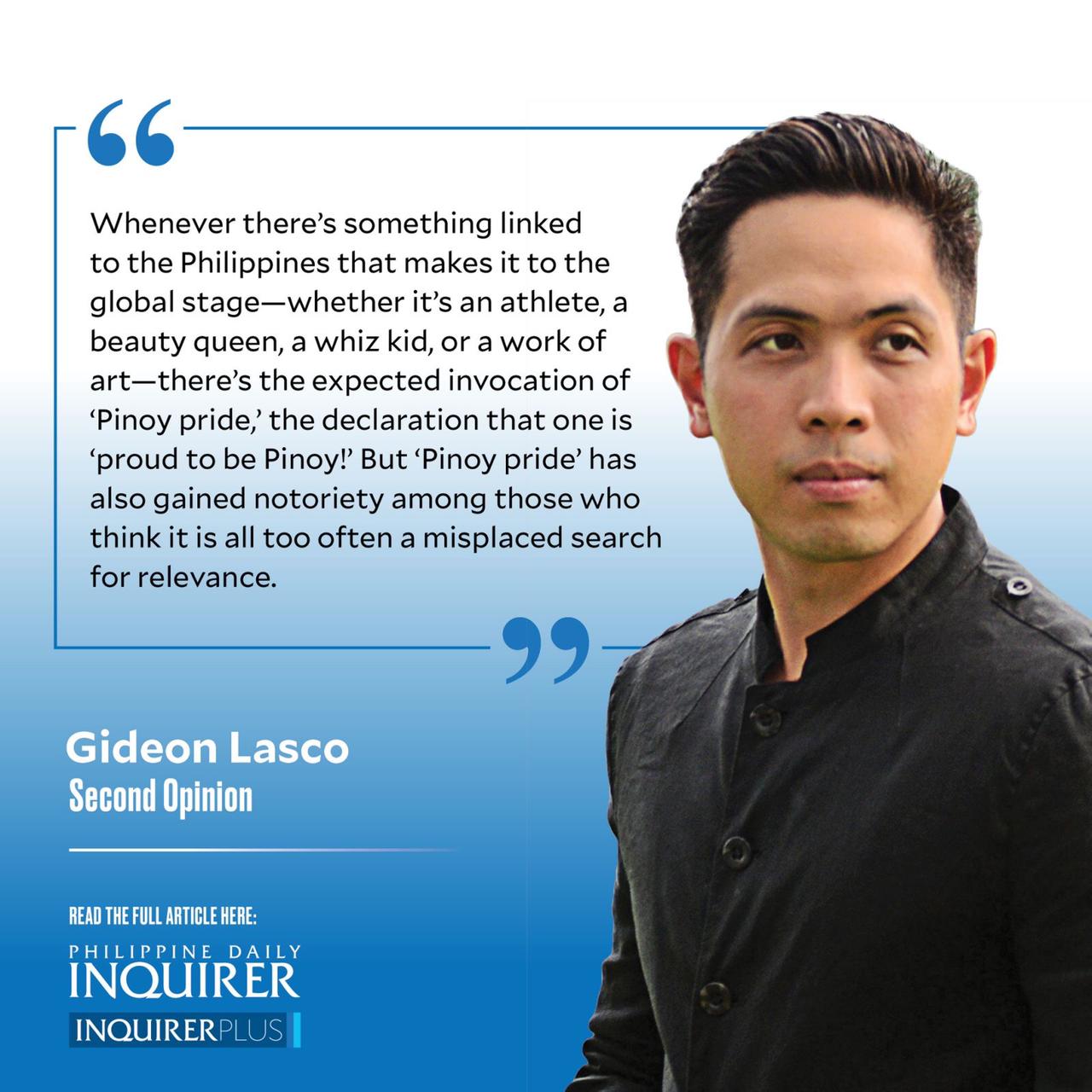Rethinking ‘Pinoy pride’

Mexico City—Whenever there’s something linked to the Philippines that makes it to the global stage—whether it’s an athlete, a beauty queen, a whiz kid, or a work of art—there’s the expected invocation of “Pinoy pride,” the declaration that one is “proud to be Pinoy!”
But “Pinoy pride” has also gained notoriety among those who think it is all too often a misplaced search for relevance. Why highlight the remote Filipino ancestry of some pop star, or feature the Filipino maid of some sporting superstar? Why allow foreign entities—from platforms like Netflix to media outlets like Time magazine—to serve as a source of validation for our accomplishments? And why the need to land in the Guinness Book of World Records for things like “World’s Largest Fish Display” or the “Most people brushing their teeth simultaneously”?
Both sentiments, I think, are understandable.
People’s notions of “Pinoy pride,” after all, often stem from a long history of Pinoy humiliation; of being told we were second class; of being patronized and infantilized, alongside being exploited and held back to such an extent that our inferiority seemed natural. Held in the light of this symbolic violence, people have looked at international validation as a way to affirm their sense of national worth. Just as Juan Luna’s medals for Cleopatra and Spoliarium gave pride to the ilustrados in the 1880s, Manny Pacquiao’s boxing victories and life story continue to resonate with many Filipinos today.
It’s also worth adding that the discourse of national pride is not unique to the Philippines. Here in Mexico, for instance, numerous articles have been written about why the people should be “orgulloso de ser mexicano” (proud to be Mexican), and the Mexican connection is always highlighted in global sports and other domains. And if pursuing Guinness records sounds trivial, we must bear in mind that it’s done all over the world; in fact, the “Most people brushing their teeth simultaneously” record, attempted by Filipinos in 2007, is currently held by India, with 26,382 people brushing their teeth simultaneously in 2019.
Even so, the discomfort is understandable for various reasons, chief of which is the argument that, by accepting Pinoy pride, we reinforce the power of others to validate us, unwittingly perpetuating our marginality. Do we really need a foreign vlogger or magazine to tell us how beautiful our beaches are? Or some international chef to tell us that our lechon is “the best pig ever”? I think there is a point to be made that all too often foreign provenance is uncritically held up as an achievement, as if just because something is “international” means that it’s prestigious.
This is especially because this “foreign validation” is exploited by unscrupulous entities, such as those who extract huge fees for children and adults alike to participate in some international event, or get some foreign “certificate.” And because, in turn, the resentment for this “foreign validation” is then capitalized on by racists who insist on a narrow definition of what constitutes “Filipino”—as well as by populists like Duterte who proclaim that “I don’t care about what other countries think,” as when we are ranked poorly in our COVID-19 response.
But can we appreciate what others think of us without placing undue importance to it, without feeling insecure about what it means? And can we welcome connections—genetic, ethnic, historic, or otherwise—with others without relying on those connections to give us a sense of identity and worth? Perhaps the problem is not with “Pinoy pride” per se, but how it often involves looking at ourselves from the eyes of others, and forcing a choice between their gaze and others. Can it not be both?
I don’t really have an answer to what constitutes “Pinoy pride,” but what I know is that there is no need to invent reasons for it, other than those that already exist. In the 1980s, school textbooks trumpeted fake “achievements” like Filipinos inventing the fluorescent lamp or moon buggy in a bid to prop up this “pride.” In fact, we have always been relevant, both in our own terms and in relation to what others have achieved.
From the Austronesian sailors who navigated the oceans to the athletes who will represent us this month in the Tokyo Olympics, there’s so much to be proud of in our nation—especially if we are willing to expand our vision of nationhood.
—————-
glasco@inquirer.com.ph




















